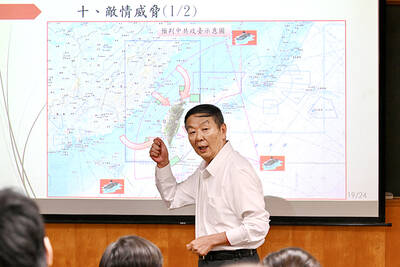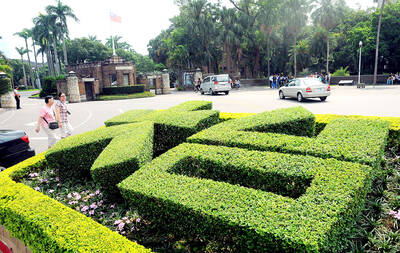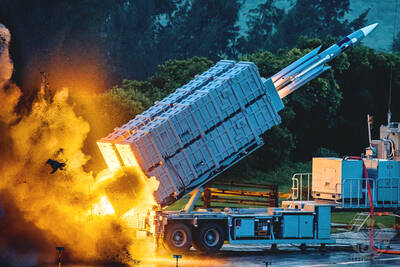Brazilian state oil company Petrobras raised US$70 billion on Thursday in the world’s biggest share offering, giving the company the financial muscle it needs to tap vast offshore oil reserves.
The Rio de Janeiro-based company sold 1.87 billion new preferred shares at 26.30 reais each, the company said in a regulatory filing. It also sold 2.4 billion new common shares at 29.65 reais each.
The cash will help fund the world’s largest oil exploration plan, which at US$224 billion from this year through 2014 aims to turn Brazil into a major energy exporter.
The record-setting stock offering, which was larger than what the company originally planned but fell short of the maximum it had filed to sell, attracted total demand of US$140 billion. The bids included US$98 billion from existing shareholders and US$42 billion from institutional investors, a source with knowledge of the transaction said.
Sovereign wealth funds from the Middle East and Asia were among the investors buying into the offering, the source said on condition of anonymity.
The offering had “tremendous demand” from US mutual funds, the source added.
Petrobras said in the filing that it may sell another 188 million new shares to meet demand in the next 30 days.
Petrobras preferred shares, the company’s most widely traded class of stock, rose 3.2 percent to 26.80 reais, outpacing a 0.7 percent rise by Brazil’s benchmark Bovespa stock index. That was the stock’s largest single-day gain since Sept. 3.
The deal, comprising a US$43 billion oil-for-shares swap with the government and the cash offer that investors settled, topped Japanese telecommunications firm NTT’s US$36.8 billion 1987 share sale and Agricultural Bank of China’s (中國農業銀行) US$22.1 billion initial public offering earlier this year.
The share sale is a boon to Brazilian President Luiz Inacio Lula da Silva as he seeks to usher his anointed successor, former chief of staff Dilma Rousseff, into office in a presidential vote on Oct. 3.
Lula, who leaves office on Jan. 1, campaigned in favor of the offering with an eye on capitalizing Petrobras, whose growing stature is a source of pride for many Brazilians and mirrors Brazil’s rise on the global stage.
The capital plan was devised by the government to give Petrobras exclusive rights to develop 5 billion barrels of oil in one of the world’s most promising energy prospects — the deep waters off Brazil’s southern coast that are believed to hold more than 50 billion barrels of crude.
Rousseff, one of the main architects of the transaction, has insisted that it will allow the state to boost its share of the total capital in Petrobras, though the government already controls a majority of the voting shares.
She led last year’s proposed overhaul of Brazil’s oil legislation to give the government greater control over new reserves and put Petrobras in all major deep-water projects, possibly stretching the company too thin.
Petrobras needs fresh cash to develop the vast reserves buried deep beneath the ocean under a layer of salt in a region known as the subsalt. Tapping those reserves could in the coming years help push Petrobras’ production above that of the world’s biggest private oil companies, including Exxon Mobil and Chevron.

RETHINK? The defense ministry and Navy Command Headquarters could take over the indigenous submarine project and change its production timeline, a source said Admiral Huang Shu-kuang’s (黃曙光) resignation as head of the Indigenous Submarine Program and as a member of the National Security Council could affect the production of submarines, a source said yesterday. Huang in a statement last night said he had decided to resign due to national security concerns while expressing the hope that it would put a stop to political wrangling that only undermines the advancement of the nation’s defense capabilities. Taiwan People’s Party Legislator Vivian Huang (黃珊珊) yesterday said that the admiral, her older brother, felt it was time for him to step down and that he had completed what he

Taiwan has experienced its most significant improvement in the QS World University Rankings by Subject, data provided on Sunday by international higher education analyst Quacquarelli Symonds (QS) showed. Compared with last year’s edition of the rankings, which measure academic excellence and influence, Taiwanese universities made great improvements in the H Index metric, which evaluates research productivity and its impact, with a notable 30 percent increase overall, QS said. Taiwanese universities also made notable progress in the Citations per Paper metric, which measures the impact of research, achieving a 13 percent increase. Taiwanese universities gained 10 percent in Academic Reputation, but declined 18 percent

CHINA REACTS: The patrol and reconnaissance plane ‘transited the Taiwan Strait in international airspace,’ the 7th Fleet said, while Taipei said it saw nothing unusual The US 7th Fleet yesterday said that a US Navy P-8A Poseidon flew through the Taiwan Strait, a day after US and Chinese defense heads held their first talks since November 2022 in an effort to reduce regional tensions. The patrol and reconnaissance plane “transited the Taiwan Strait in international airspace,” the 7th Fleet said in a news release. “By operating within the Taiwan Strait in accordance with international law, the United States upholds the navigational rights and freedoms of all nations.” In a separate statement, the Ministry of National Defense said that it monitored nearby waters and airspace as the aircraft

UNDER DISCUSSION: The combatant command would integrate fast attack boat and anti-ship missile groups to defend waters closest to the coastline, a source said The military could establish a new combatant command as early as 2026, which would be tasked with defending Taiwan’s territorial waters 24 nautical miles (44.4km) from the nation’s coastline, a source familiar with the matter said yesterday. The new command, which would fall under the Naval Command Headquarters, would be led by a vice admiral and integrate existing fast attack boat and anti-ship missile groups, along with the Naval Maritime Surveillance and Reconnaissance Command, said the source, who asked to remain anonymous. It could be launched by 2026, but details are being discussed and no final timetable has been announced, the source